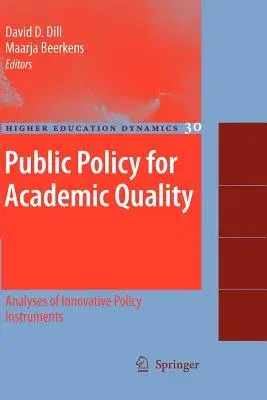Over the last decade the structure of higher education in most countries
has undergone significant change brought about by social demands for
expanded access, technological developments, and market forces. In this
period of change the traditional concerns with access and cost have been
supplemented by a new concern with academic quality. As a consequence,
new public policies on academic quality and new forms of academic
quality assurance have rapidly emerged and swiftly migrated across
continents and around the globe.
The growing public debate about academic quality assurance within and
across countries however has not always been well informed by analyses
of the strengths and weaknesses of these new policy instruments. The
Public Policy for Academic Quality Research Program (PPAQ) was designed
to provide systematic analyses of innovative external quality assurance
policies around the world. This volume presents the fourteen analyses of
national policies on academic quality assurance conducted as part of the
PPAQ Research Program utilizing the knowledge of informed international
scholars. Each policy analysis examines the policy goals, implementation
problems, and impacts of these newly developed national quality
assurance instruments. The book concludes with an assessment of the
lessons learned from these collected policy analyses and outlines the
framework conditions that appear essential for assuring academic
standards in the university sector.

